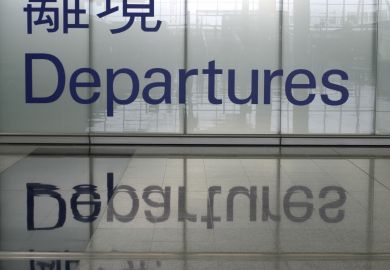Concerns are growing about international students suffering “harsh and unjustified” refusals by Home Office officials after being accepted for admission by UK universities as it emerges the department has been looking at further tightening the visa regime with a set of new measures.
Nearly 250,000 “credibility interviews” have so far been conducted on prospective non-European Union students in the past two years, refusing visas to 9 per cent of applicants on average over the period, it has emerged in government figures.
The UK Council for International Student Affairs (UKCISA), whose membership includes all British universities, says that it has received a “substantial increase in reports of [visa] refusals on grounds of ‘credibility’”.
In a report sent to the Home Office, UKCISA cites reports from universities that list reasons for refusal given to students after credibility interviews by department officials, which include “not knowing the number of students likely to be in a class”, “not knowing exam dates” and “being told that studying to be a dietician is an unlikely plan as there is no demand for that expertise in Syria”.
Separately, several sector sources have suggested that the Home Office is looking at plans to lower the visa refusal rate that is permitted if institutions want to be sponsors under the Tier 4 system for overseas students, from 10 per cent of total applications to 5 per cent, possibly via an interim stage of 8 per cent.
If institutions’ refusal rates rise above the permitted level, they are at risk of losing their licence to admit overseas students.
The government lowered the permitted refusal rate from 20 per cent to 10 per cent last year.
And last week, the Home Office convened a meeting with sector representatives at Universities UK (UUK) where it canvassed opinion on plans to raise the minimum levels of English required for students to gain a visa.
Dominic Scott, chief executive of UKCISA, said: “There are general concerns about things tightening in four or five different ways.”
This has happened “without anybody saying ‘we are going to reduce the number of international students because we have too many’”, he added. “But there are various administrative mechanisms which will actually have that impact.”
On the credibility interview figures, Pam Tatlow, chief executive of the Million+ group of new universities, said that it was not known whether officials were making “impartial” decisions in credibility interviews that were “taking place after universities have issued a confirmation of acceptance of study”.
Figures on credibility interviews – which are conducted via video link by UK Visas and Immigration officials in Britain – emerged in answer to a written parliamentary question from Labour peer Lord Stevenson of Balmacara.
Lord Bates, minister of state in the Home Office, responded that between April 2013 and December 2013 there were 102,635 interviews; between January 2014 and December 2014 there were 125,580; and between January 2015 and June 2015 there were 17,330.
Lord Bates also detailed the proportion of applicants refused a visa after credibility interviews, which averaged 9 per cent over the period. But it did fluctuate, tending to be highest in the first quarter of a year (15 per cent in quarter one of 2014) and lowest in the second or third quarter (5 per cent in quarter two of 2015).
UKCISA’s document contains reports about credibility refusals for students from officials at 16 institutions, 15 of which are universities, on an anonymised basis.
One says: “We’ve experienced a number of refusals on credibility grounds from Chennai in India which we would describe as harsh and unjustified.”
Another says: “I have watched our ‘credibility refusals’ more than double in the last year. We have been concerned with these types of refusals coming out of Pakistan for a few months now and are getting reports of a similar trend popping up in southern India too.”
Mr Scott said that refusals after credibility interviews were “desperately sad for the individual concerned, but potentially hugely damaging in terms of [a university] maintaining a [visa sponsor] licence, especially if it [the refusal rate] was reduced down to 5 per cent”.
The figures on credibility interviews and fears about further visa restrictions came as the Conservatives met in Manchester for their annual party conference. Some sector sources raised the possibility before the start of the conference that it could be used to announce a shift in policy on international students, an issue that has divided Cabinet ministers.
POSTSCRIPT:
Print headline: Visa crusade risks ‘cut’ to overseas numbers
Register to continue
Why register?
- Registration is free and only takes a moment
- Once registered, you can read 3 articles a month
- Sign up for our newsletter
Subscribe
Or subscribe for unlimited access to:
- Unlimited access to news, views, insights & reviews
- Digital editions
- Digital access to THE’s university and college rankings analysis
Already registered or a current subscriber?






